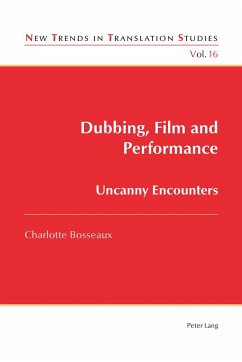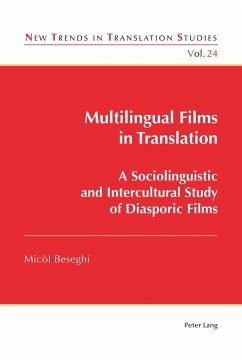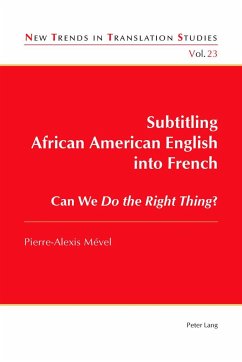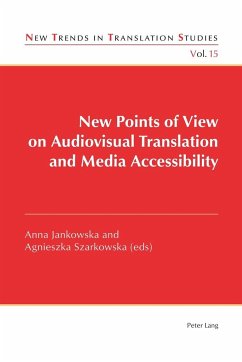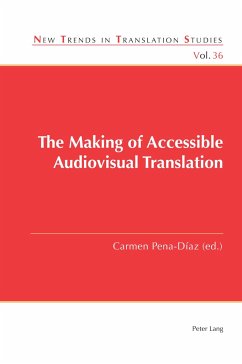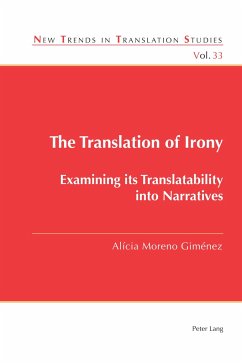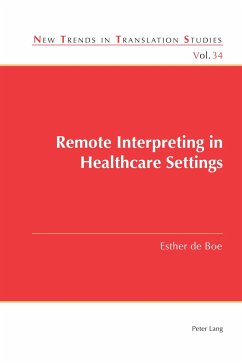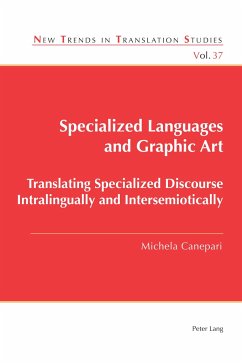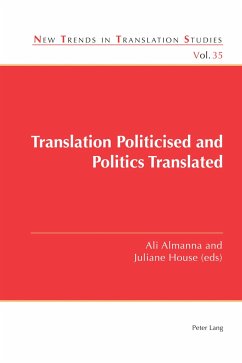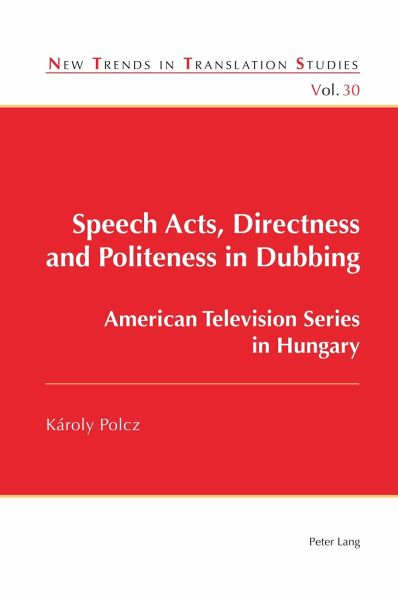
Speech Acts, Directness and Politeness in Dubbing
American Television Series in Hungary
Herausgegeben: Díaz Cintas, Jorge
Versandkostenfrei!
Versandfertig in 6-10 Tagen
71,95 €
inkl. MwSt.
Weitere Ausgaben:

PAYBACK Punkte
0 °P sammeln!
The culture specificity of speech acts may pose daunting challenges in translating audiovisual products. This volume offers intriguing insights into the ways dubbing translators seek to establish pragmatic equivalence in speech acts such as requests, instructions, advice, invitations and offers. What is the nature of pragmatic equivalence in speech acts? What types of pragmatic shifts do translators employ in the pursuit of pragmatic equivalence? Do shifts in directness have a bearing on target language politeness? While focused on a relatively large amount of linguistic data retrieved from mo...
The culture specificity of speech acts may pose daunting challenges in translating audiovisual products. This volume offers intriguing insights into the ways dubbing translators seek to establish pragmatic equivalence in speech acts such as requests, instructions, advice, invitations and offers. What is the nature of pragmatic equivalence in speech acts? What types of pragmatic shifts do translators employ in the pursuit of pragmatic equivalence? Do shifts in directness have a bearing on target language politeness? While focused on a relatively large amount of linguistic data retrieved from more than 700 episodes of twenty different television series, the study introduces a multidimensional model that can be used as a heuristic tool in the analysis of speech acts in translation studies. This venture into the realm of pragmatics and translation research is aimed at capturing dominant patterns in translating speech acts in audiovisual translation, which, as the author claims, couldbe tied to translation universals.





